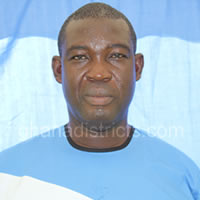Background Information
The Shai Osudoku District is one of the twenty nine (29) District Assemblies in the Greater Accra Region. It forms about 41.5% of the landmass of the Region and therefore the largest. The total land area is 1,442 sq km (144,201 ha), which consists of total cultivable land of 129,600 hectares and has a coastline stretch of about 37kms.
The District has 22km of the Lower Volta River running through and along the Northern to Eastern boundaries. About 45,600ha of the land is currently under cultivation with about 2,200 hectares under
irrigation.
The vegetation is mainly coastal savannah with a small transitional zone along the foothills of the Akwapim Range. The soil type is mainly of the heavy Akuse series with sandy and sandy-loams in certain areas. The rainfall pattern is bimodal and the main agricultural activities undertaken are livestock and crop production, fish production, fishing and fish processing and other agro-
processing activities.
Crops production includes maize, cassava, rice, tomatoes, garden eggs, okra, pepper, watermelon, sugarcane, banana, pineapple, pawpaw and exotic vegetables (for export). Tree crops grown are mainly mangoes with a few small-scale cashew plantations in the Ningo area.
Livestock production comprise of cattle, sheep and goats with a large local poultry population, some medium scale holdings (ASAS, Sapporo Farms, Ratio Farms etc.) and few commercial holdings (e.g. Gateway (AAH) McBaron for Ostiches, Farmer George for broiler production etc.)
Fish production in inland waters is undertaken by Tropo Farms, a privately owned business enterprise and Aqua Agric, a development NGO with a few dams and dugouts being stocked with fish by the communities. Marine fishing and traditional fish processing are the main activity undertaken along the 37km stretch of coastline.
The District is also home to a prolific beekeeping activity that produces arguably the best honey in the country. The District, in spite of its proximity to the national capital is basically rural with a poor state of socio-economic and infrastructure development.
By virtue of its strategic location, that is the nearness to urban Accra and Tema which have the airport and sea port respectively and the Volta Lake Transport System that links the south to the north, the District has the potential to be converted into a preferred agribusiness destination. This we are determined to achieve in the near future.
Date Created : 11/24/2017 1:44:51 AM






 facebook
facebook X (twitter)
X (twitter) Youtube
Youtube +233 593 831 280
+233 593 831 280 0800 430 430
0800 430 430 GPS: GE-231-4383
GPS: GE-231-4383 info@ghanadistricts.com
info@ghanadistricts.com Box GP1044, Accra, Ghana
Box GP1044, Accra, Ghana